Contribution Details
Pamboridis LLC
christy spyrou
Senior Associate
Law
Cyprus implemented the EU Data Protection Directive 95/46/EC in November 2001 with the Processing of Personal Data (Protection of the Individual) Law of 2001 and its amendments (Law No. 37(I)/2003, 105(I)/2012)).
Definition of Personal Data
“Personal data” or “data” means any information relating to a living data subject. Consolidated data of a statistical nature, from which the data subject cannot be identified, is not deemed to be personal data.
Definition of sensitive Personal Data
“Sensitive data” means data concerning racial or ethnic origin, political convictions, religious
or philosophical beliefs, participation in a body, association and trade union, health, sex life and erotic orientation as well as data relevant to criminal prosecutions or convictions.
National Data Protection authority
office of the Commissioner for Personal Data Protection (“commissioner”)
1, iasonos Str. 2nd Floor, 1082 nicosia, Cyprus
Registration
Data controllers or data protection officers who process personal data must notify the Commissioner in writing about the establishment and operation of a filing system or the commencement of processing of personal data. The information provided in this written notice is then filed in the Register of Filing Systems and Processing kept by the Commissioner and any change to this information must be notified in writing without delay by the data controller or data protection officer to the Commissioner.
The notification should include the following information:
- the full name, business name or title and address of the data controller;
- the address where the filing system is established or the main equipment necessary for the
- processing to be installed;
- a description of the purpose of the processing of the personal data;
- the categories of data subjects;
- the categories of data which are or are intended to be processed;
- the period of time for which the data will be processed or the filing system will be
- established;
- the recipients to whom the data will be communicated;
- the proposed transmissions of data to third countries and the purpose thereof; and
- the basic characteristics of the system and the measures for the security of the filing system or of the processing.
Data Protection officers
The law provides that any organization that processes personal data must designate to the Commissioner a controller or data protection officer who is ultimately responsible for the processing of personal data.
Collection and Processing
Data controllers may collect and process personal data when any of the following conditions are
met:
- the data subject consents;
- the data controller needs to process the data to enter into or carry out a contract to which the data subject is a party;
- the processing satisfies the data controller’s legal obligation;
- the processing protects the data controller’s vital interests;
- processing is necessary for the performance of a task carried out in the public interest or in the exercise of public authority vested in the controller or a third party to whom the data will be communicated; or
- processing is necessary for the purposes of the legitimate interests pursued by the controller or by the third party to whom the personal data is communicated, on condition that such interests override the rights, interests and fundamental freedoms of the data subjects.
Processing of sensitive personal data is permitted when the data subject has given his explicit
consent or when one or more of a list of more stringent conditions are fulfilled.
Transfer
Data controllers may transfer personal data out of the European Economic Area only after the data protection officer or controller has obtained a license for such transfer from the Commissioner. The Commissioner shall issue the license only if he considers that the said country ensures an adequate level of protection.
The transmission of personal data to a country which does not ensure an adequate level of protection, is permitted exceptionally after a license of the Commissioner where one or more of the following conditions are fulfilled:
- the data subject consents;
- the transmission is necessary in order to protect the vital interests of the data subject;
- the transmission is necessary for the conclusion and performance of a contract to which the data subject is a party;
- the transmission is necessary for the implementation of pre contractual measures which have been taken in response to the data subject’s request;
- the transmission is necessary in order to safeguard a superior public interest;
- the transmission is necessary for the establishment, exercise or defense of legal claims before
- a court; or
- the transmission is made from a public register which, according to the law, provides
- information to the public or to any person who can show legitimate interest.
Security
The processing of data is confidential. It shall be conducted solely by persons acting under the authority of the data controller or the processor and only after their instructions.
Data controllers must take the appropriate technical and organizational measures for the security of data and their protection against accidental or unlawful destruction, accidental loss, alteration, unauthorized dissemination or access and any other form of unlawful processing. Such measures must ensure a level of security which is appropriate to the risks involved in the processing of the data.
From time to time, the Commissioner gives directions with regard to the degree of security of the data and to the measures of protection required to be taken for every category of data, also taking into account technological developments.
If the processing is performed by the processor, the assignment for the processing must be made in writing. The assignment must provide that the processor shall perform the processing only upon instructions from the controller and that the remaining obligations set out in the relevant sections of the Processing of Personal Data Law shall also lie on the processor.
Breach notification
There is no mandatory requirement in the Processing of Personal Data Law to report data security breaches or losses to the Commissioner or to data subjects.
Enforcement
The Commissioner is responsible for the enforcement of the processing of personal data law. The Commissioner may impose on the data controller or data protection officer or their
representatives the following administrative sanctions:
- a fine of up to EUR 30,000;
- a temporary revocation of license;
- a permanent revocation of license;
- a warning with a specific time limit for the termination of the contravention; or
- the destruction of the filing system or the cessation of processing and the destruction of the relevant data.
Section 26 (1) of the Processing of Personal Data Law lists the breaches of the law which constitute an offence and the penalties imposed. Such penalties range from imprisonment for a term not exceeding three years or a fine up to approximately EUR 5,130 or both, to
imprisonment for a term not exceeding five years or a fine up to EUR 8,453 or both, depending
on whether:
- the offence was caused by negligence;
the person committing the offence intended to obtain for himself or anyone else an unlawful
financial benefit or cause injury to a third party; or
the committed offence endangered the free functioning of the Government of the Republic or national security.
The offences committed in contravention of the provisions of this section 26 (1) for which no other penalty is expressly provided, are punishable with imprisonment for a term not exceeding one year or with a fine not exceeding approximately EUR 3,417.20 or by both such imprisonment and fine.
Electronic Marketing
The Regulation of Electronic Communications and Postal Services Law of 2004 (112(I)/2004) as amended by Law No 105(I)/2012 (“Electronic and Postal Services Law”) will apply to most electronic marketing activities, as there is likely to be processing and use of personal data involved (e.g. an e-mail address is likely to be personal data for the purposes of the Electronic and Postal Services Law).
Section 106 of the Electronic Communications and Postal Services Law states the following:
- the use of automatic calling machines, fax, or electronic mail, or SMS messages, for the purposes of direct marketing, may only be allowed in respect to subscribers who have given their prior consent;
- unsolicited communications for the purposes of direct marketing, by means other than those
- referred to in (i) above, are not allowed without the consent of the subscribers concerned;
- the rights referred to in (i) and (ii) above shall apply to subscribers who are natural persons. The Commissioner of Electronic Communications and Postal Regulation, may, after consultation with the Personal Data Commissioner, issue an order to safeguard that legitimate interests of legal persons, regarding unsolicited communications, are adequately protected;
- notwithstanding (i) above, in cases where a natural or legal person obtains from its customers contact details for electronic mail, in the context of the sale of a product or a service, the
- same natural or legal person may use these electronic details for direct marketing of its own similar products or services, provided that customers are clearly and distinctly given the opportunity to object, free of charge and in an easy manner, to such use of their electronic contact details when they are collected and on the occasion of each message in case the customer has not initially refused such use; and
- electronic mail sent for direct marketing must not disguise or conceal the identity of the sender or the person on whose behalf the communication is made, or without a valid address to which the recipient may send a request that such communications cease.
Online Privacy (including cookies and Location Data)
Part 14 of the Electronic and Postal Services Law deals with the collection of location and traffic data and use of cookies (and similar technologies) by publically available electronic
communication providers service
Traffic Data
Traffic Data concerning subscribers and users, which are submitted to processing so as to establish communications and which are stored by Organizations, shall be erased or made anonymous at the end of a call, except: for the purpose of subscriber billing and interconnection payments; and if the subscriber or user consent that the data may be processed from an undertaking for the purpose of commercial promotion of the services of electronic communications of the latter or for the provision of added value services.
The prohibition of storage of communications and the related traffic data by persons other than the users or without their consent is not intended to prohibit any automatic, intermediate and transient storage of this information. Users or subscribers shall be given the possibility to withdraw their consent for the processing of Traffic Data at any time.
Location Data
Location Data may only be processed when made anonymous, or with the consent of the users or subscribers to the extent and for the duration necessary for the provision of a value added service.
The service provider must inform the users or subscribers, prior to obtaining their consent, of the following:
- type of Location Data which will be processed;
- the purpose and duration of the processing; and
- whether the data will be transmitted to a third party for the purpose of providing the value added service.
Users or subscribers shall be given the possibility to withdraw their consent for the processing of Location Data at any time.
Cookie Compliance
The storage and use of cookies and similar technologies is permitted only if the subscriber or user concerned has been provided with clear and comprehensive information, inter alia, about the purposes of the processing, and has given his consent in accordance with the Processing of Personal Data Law.
The above shall not prevent any technical storage or access for the sole purpose of carrying out or facilitating the transmission of a communication over an electronic communications network, or as strictly necessary in order to provide an information society service explicitly requested by the subscriber or user.




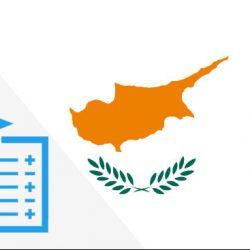
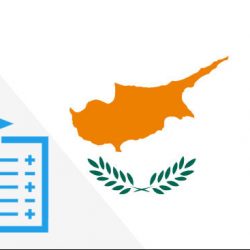
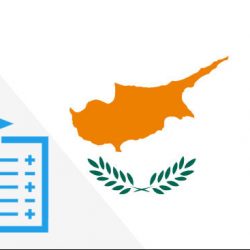
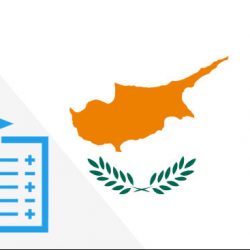
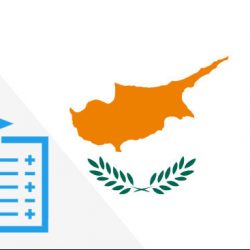
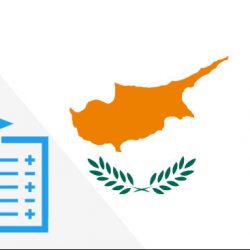
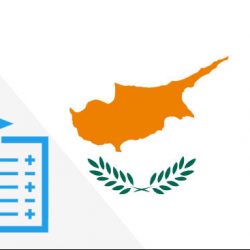
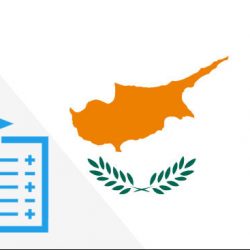
 We will not leak your personal information
We will not leak your personal information